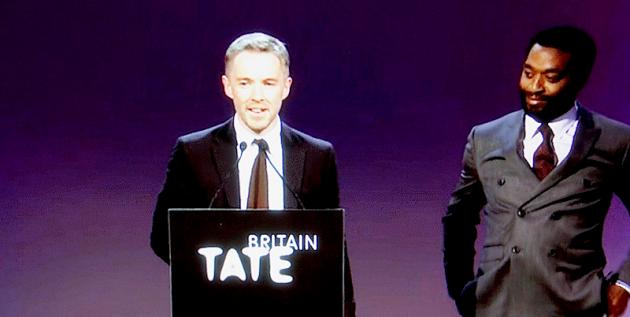Favourite Duncan Campbell has won this year’s Turner Prize on the anniversary of its 30th year; the artist presented his in-depth video work ‘It For Others’. Campbell beat fellow artists James Richards, Tris Vonna-Mitchell, and Ciara Phillips, shortlisted for Britain’s most coveted contemporary art prize. The four artists employed audio, video, craft and design, however this year, for the first time traditional painters and sculptors have been left off the shortlist.
The Turner Prize is a contemporary art award set up in 1984 to celebrate new developments in contemporary art. It is awarded each year to ‘a British artist under fifty for an outstanding exhibition or other presentation of their work in the twelve months preceding’. Nominations are invited each year, and the prize is judged by an independent jury that changes annually.
Tate Britain’s Lizzie Carey-Thomas said the shortlist was “more accessible” than in past years. “It’s not art about art, it’s art about the world and other subjects everybody has experience of and can relate to,” she said as the nominees were announced earlier this year. With the majority of the works on display this year being video pieces of varying lengths, these time-based works challenged the viewer, with Campbell’s work being by far the longest.
But Duncan Campbell ‘It For Others’ (2013) was perhaps the most accomplished offering, which is in no small part indebted to French filmmaker Chris Marker’s ‘Statues Also Die’ (1953), about the commercialisation of African art. Campbell explains his search for what Beckett worded as “a form that accommodates the mess”, while self-reflexively reminding us that documentary is fiction. It is slow-paced yet methodical, and deals with the age-old – and still unsolved – topic of how the meanings of objects are manipulated. Perhaps the example of Marx’s Theory of Value and commodification is dense and borderline academic, but the means are justified by Campbell’s dry wit and penetrating conclusions. Those who complain of the film’s lengthy 54-minute run time would do well to remember Mark Wallinger’s ‘Sleeper’, an 154-minute film of the artist strolling around in a bear suit, which won in 2007.
But this year’s Turner Prize was by no means a crowd pleaser, and certain pieces were sheer hard work. And although we can generate discussion about contemporary art developments it seems to stay within the confines of set structure of power, in this case the insiders of the art world. But then exclusivity is what helps to maintain those structures which are set firmly in place.
The prize was presented by Chiwetel Ejiofor who earlier stated: ‘I am delighted and honoured to be presenting this year’s Turner Prize. For thirty years this prestigious award has represented, in its winners and nominees alike, extraordinary artistic endeavour that has delighted, challenged and inspired fellow artists and lovers of art across the globe.’
The Turner Prize 2014 exhibition runs until 4 January 2015 at Tate Britain.

